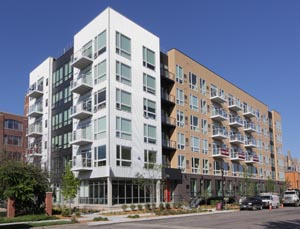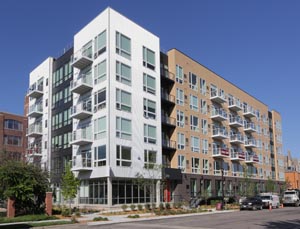Home Improvement
Apartments Booming In Twin Cities

Finally! Some good economic news when it comes to the Twin Cities. It seems as if we have waited quite a while for some uplifting financial news across the country.
The Twin Cities, similar to other major metropolitan areas, are experiencing a housing boom.
More specifically in the Twin Cities, apartments are booming and they are going up in some of the busier parts of the area.

While all of America is still working to return to its pre-recession status,
an in increase in housing demand is a promising way to start.
The Twin Cities did better than many other U.S. cities during the recession that hit America around 2007.
The biggest pinch felt in the Twin Cities was an increased unemployment rate.
While real estate development did slow down during the recession,
it wasn’t as bad as many cities and only saw a 57% decrease in new development.
Now, thanks to many factors the real estate is recovering in Minnesota, similar to other states.
One of the biggest reasons is that people who had to foreclose on their homes are now at the point where they can financially think about purchasing a home again.
This has contributed, in part, to a market saturated with buyers. An increase in buyers means the need for an increase in housing inventory and so far the suppliers haven’t been able to keep up.
Although the Twin Cities are seeing an increased need for homes, there is also a significant increase in demand for apartments.
There are several reasons cited for this, one being that many people are neglecting the idea of a long commute into areas highly populated with businesses.
People instead are opting to live closer to urban areas. Another reason for an increased need for apartments is that people who would have normally purchased a home are having a hard time finding a home that meets.
They aren’t willing to commit to what’s left over. Also, many people aren’t finically prepared to offer more than an asking price.
With such a low supply of houses sometimes a bidding war is the only way to secure a home.
Developers have responded to the increased demand for apartments. More than 1,400 apartment units were built in 2012 and there are even more on the way.
This year the highest number of building permits was issued since 2007, before the recession hit. While a shortage of apartments temporarily resulted in some higher rent prices, new construction could mean good news for renters.
When more options become available, apartment complexes will be forced to remain competitive in order to retain current occupants and attract new ones.
It’s hard to predict what will happen to the increased number of apartments once housing supply is increased and buyers have more options.
But, if you are in the market for a home and can’t find one that you like then you just might have to follow the path of other buyers and settle for renting until the real estate inventory picks back up.
Ross Herman is a real estate and investment expert of the Twin Cities region in Minnesota, and a community blogger for www.webuyuglyhousestwincities.com
-

 Tech11 years ago
Tech11 years agoCreating An e-Commerce Website
-

 Tech11 years ago
Tech11 years agoDesign Template Guidelines For Mobile Apps
-

 Business6 years ago
Business6 years agoWhat Is AdsSupply? A Comprehensive Review
-

 Business10 years ago
Business10 years agoThe Key Types Of Brochure Printing Services
-

 Tech8 years ago
Tech8 years agoWhen To Send Your Bulk Messages?
-

 Tech5 years ago
Tech5 years ago5 Link Building Strategies You Can Apply For Local SEO
-

 Law5 years ago
Law5 years agoHow Can A Divorce Lawyer Help You Get Through Divorce?
-

 Home Improvement6 years ago
Home Improvement6 years agoHоw tо Kеер Antѕ Out оf Yоur Kitсhеn































